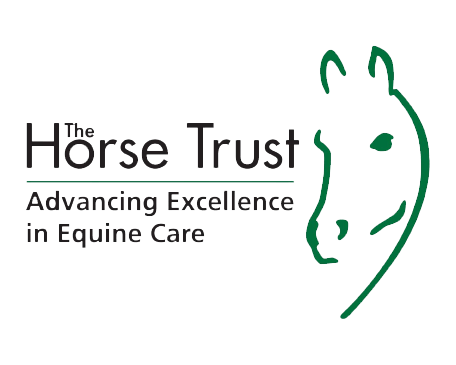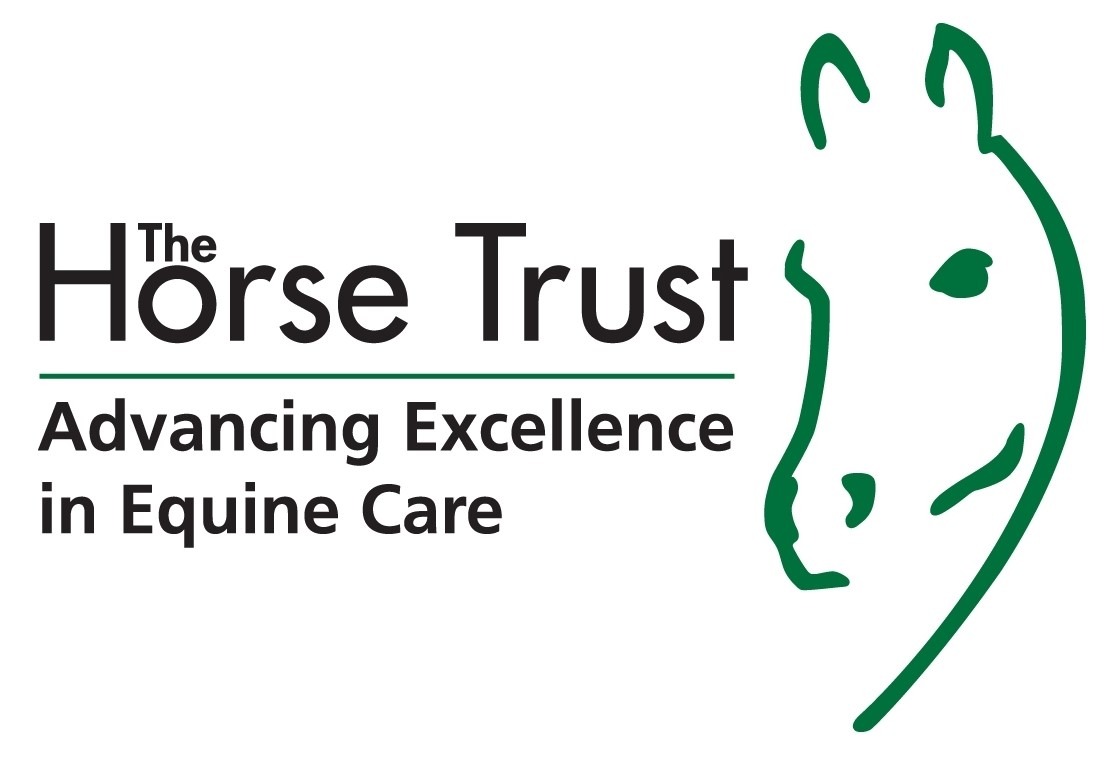Rewatch TalkEquine On Demand
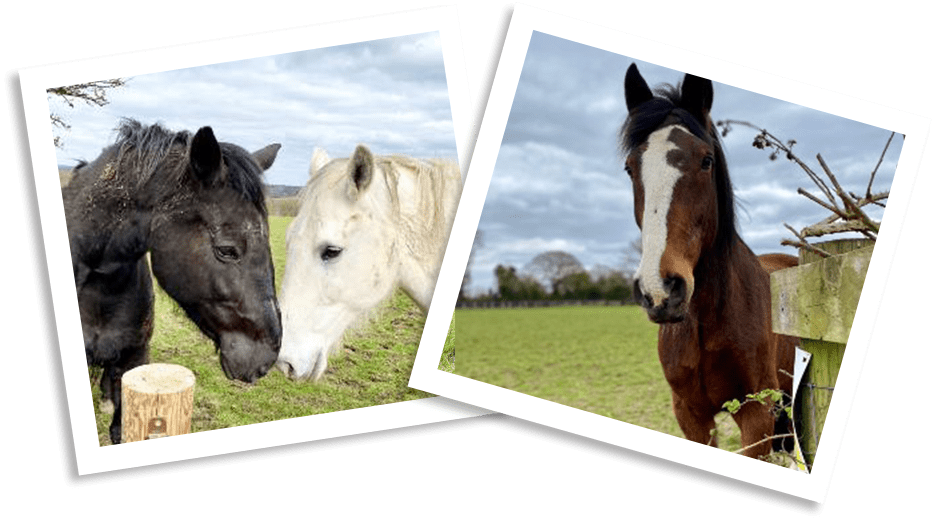
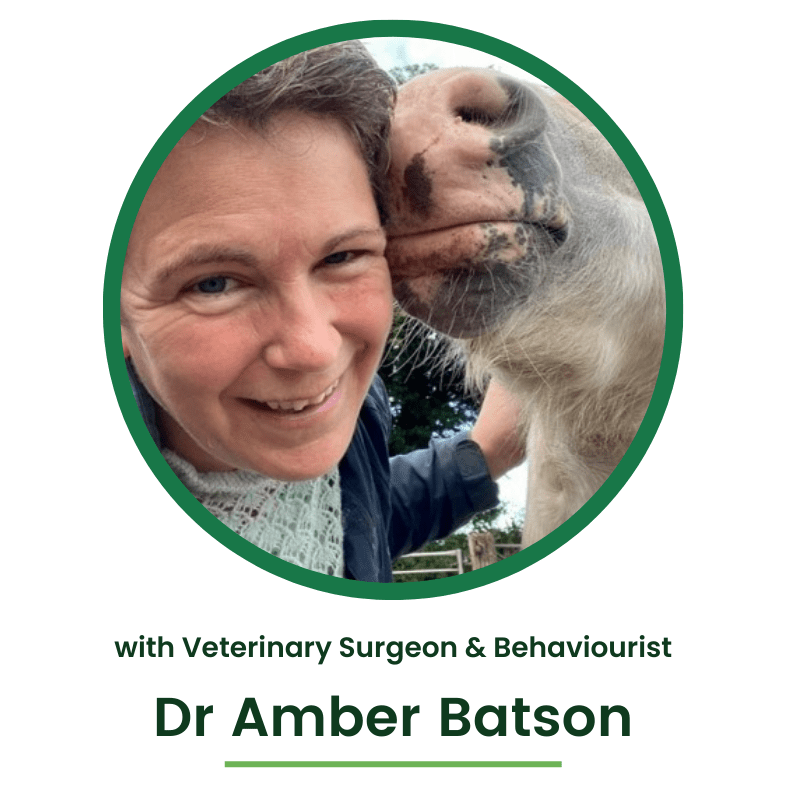
TalkEquine Health and Behaviour
Getting to the guts of behaviour
Presented by Dr Amber Batson
During the webinar Amber pulls together the most up-to-date research on the intestinal microbiome of the horse and how that influences a variety of internal processes that can impact on how the horse feels, reacts and learns. She also looks at gastrointestinal health and how disorders affecting the gut can influence a variety of behaviours. The information is then pulled together with two case studies where gut health was a significant contributing factor to the perceived behaviour issue (one an abnormal oral repetitive behaviour and one a human-directed aggression case).
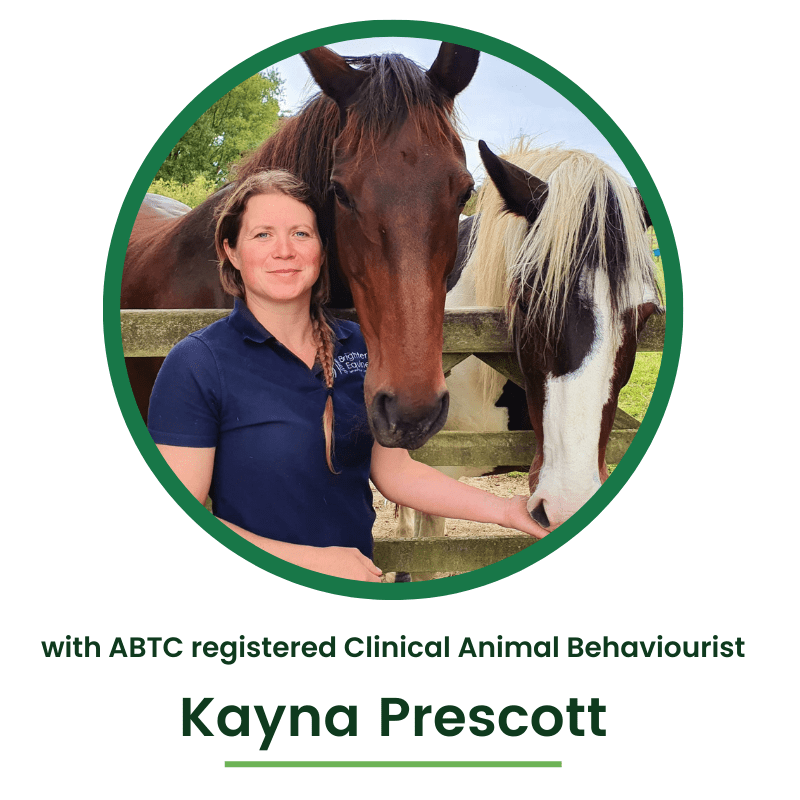
TalkEquine Clinical Animal Behaviour Case Study
Mule Behaviour
Presented by Kayna Prescott
Clinical Animal Behaviourist, Kayna Prescott, discusses the behaviour of mules and hinnies, exploring how they differ from horses. She then dives into the case, which involved a mule who was being trained to accept being touched around her head and muzzle, and was not progressing as expected. Kayna explores the challenges of changing the behaviour of humans and animals where the equid is being cared for by a team of people, rather than an individual. She goes on to discuss how the subsequent behaviour modification plan was designed to ensure consistency across the team and meet the aims of the handler but also, after professional discussions, the vet.
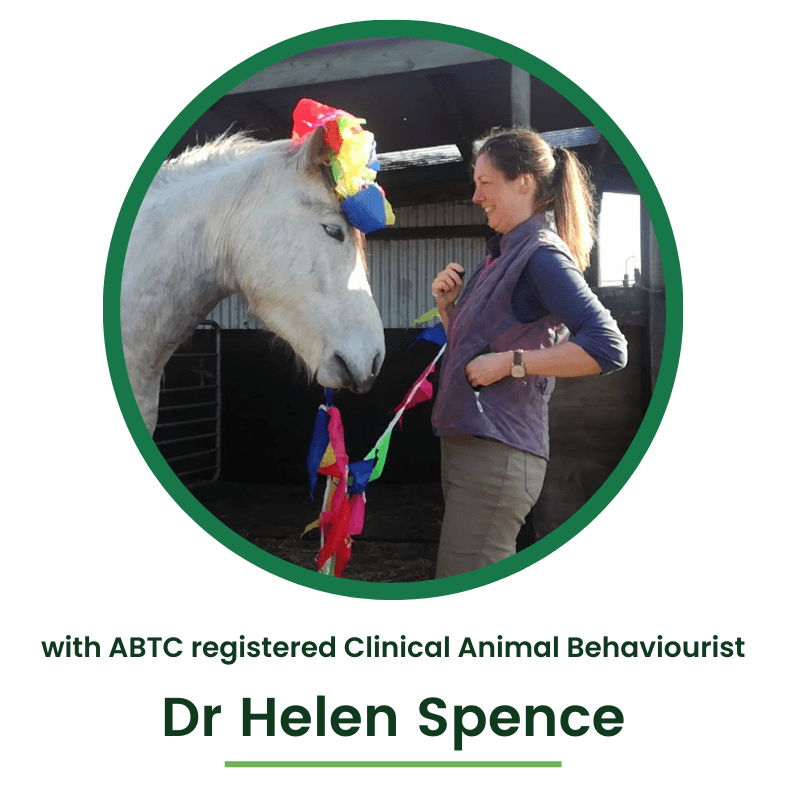
TalkEquine Clinical Animal Behaviour Case Study
A case of a miniature Shetland who wouldn’t let her owners near her
Presented by Dr Helen Spence
Dr Helen Spence discusses a miniature Shetland mare who had her owners completely stumped. Despite many years of experience between them, she wouldn’t let either of them near her, let alone touch or catch her. We follow her transformation from cautious to curious to confident, dealing with grooming, catching, leading, farrier and trailer issues along the way.
Our case study webinars are developed for equine behaviourists, and those working towards becoming a behaviourist. The case study topics are also relevant for other equine professionals and anyone with an interest in equine behaviour.
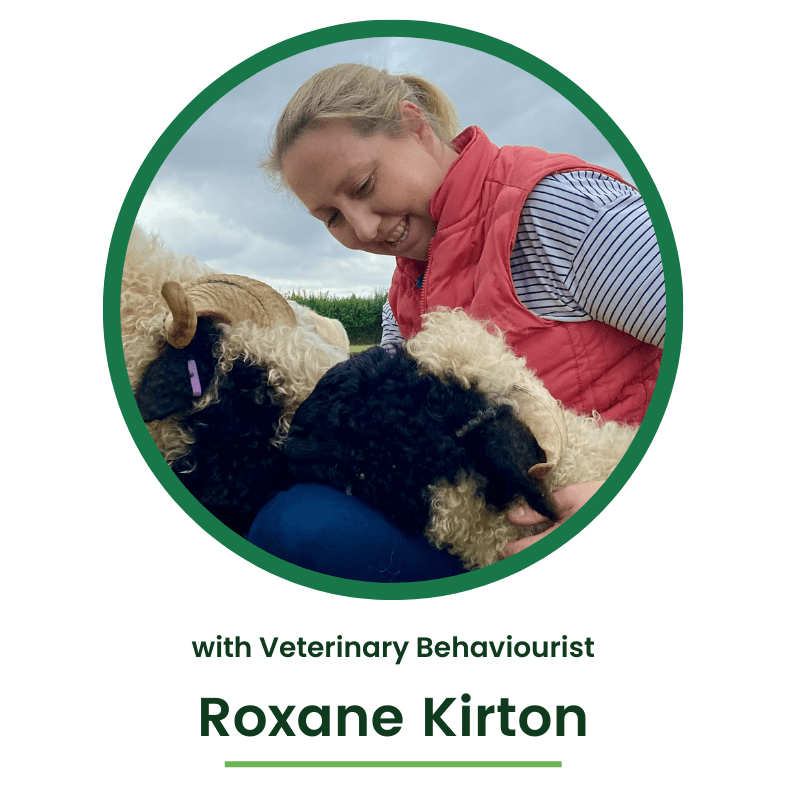
TalkEquine Health and Behaviour
Welfare Minded Equine Weight Management
Presented by Roxane Kirton
Veterinary Behaviourist, Roxane Kirton, discusses the impact that weight management systems can have on a horse’s quality of life. It is not sufficient for weight management strategies to simply be effective; they must also support giving the horse the best possible quality of life, and at least a life worth living. During the webinar, Roxane discusses how to critically evaluate common weight management systems and how best to balance horses’ health and ethological needs when designing weight management plans.
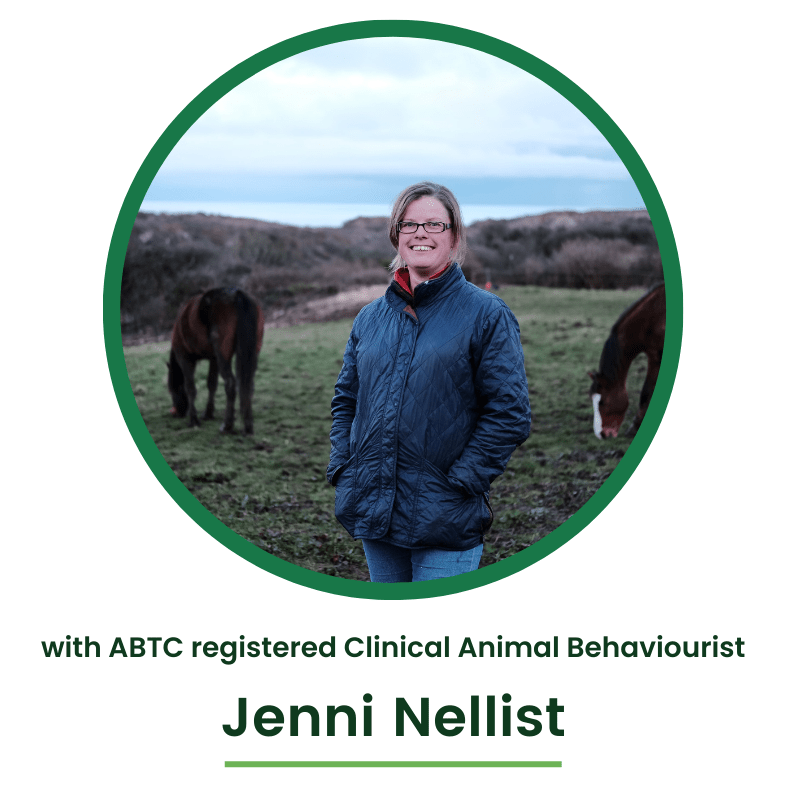
TalkEquine Clinical Animal Behaviour Case Study
A case of a 2 year old filly who presented with aggressive behaviour
Presented by Jenni Nellist
Clinical Animal Behaviourist, Jenni Nellist, discusses a two-year-old filly who presented with aggressive behaviour. The filly had been found on a common without her dam at 24 hours old and was subjected to aggressive behaviour from entire males. During the webinar, Jenni explores how the filly’s behaviour had been influenced by stress, health, and social and sexual development.
Our case study webinars are developed for equine behaviourists, and those working towards becoming a behaviourist. The case study topics are also relevant for other equine professionals and anyone with an interest in equine behaviour.
Original date of recording: Wednesday 6th December 2023
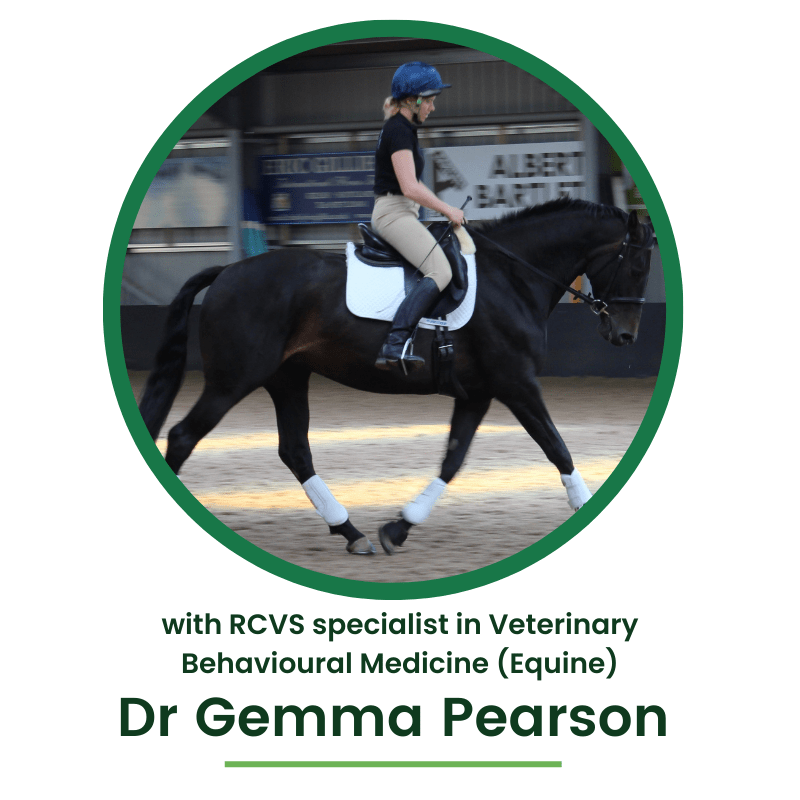
TalkEquine Clinical Animal Behaviour Case Study
A case of an eventing mare who developed severe stress responses following veterinary treatment
Presented by Dr Gemma Pearson

TalkEquine Health and Behaviour
Under the Skin: links between skin disease and behaviour issues in the horse
Presented by Dr Amber Batson
Dr Amber Batson MRCVS discusses the links between skin disease and behaviour issues in the horse.
Amber explores how the skin, as one of the largest organs in the equine body, can influence emotional responses, in part due to its direct links with the gut and immune system. Many skin diseases are associated with significant inflammation and intense itchiness, and Amber explains how these can affect behaviour. She discusses important issues such as how we can recognise skin disease as a potential part of a behaviour case, and what tools a vet might use to use to make a diagnosis or assess the relevance of skin disease to a case. Towards the end of the webinar, Amber presents case studies involving horses with skin disease.
The aim of these webinars is to provide student, trainee and registered Clinical Animal Behaviourists with evidence-based CPD to further develop their understanding of specific medical conditions and how they can impact on the horse’s behaviour, both in terms of the direct physical/behavioural impact, but also how having the condition can affect other areas of the horse’s life.
These webinars may also be useful to other equine professionals, and anyone with an interest in equine behaviour.
Original date of recording: Wednesday 20th September 2023

TalkEquine Clinical Animal Behaviour Case Study
Comparing case outcomes in horses/ponies that present with a significant fear of people
Presented by Kayna Prescott
In this webinar, Clinical Animal Behaviourist, Kayna Prescott, compares case outcomes in horses/ponies that present with a significant fear of people.
Kayna shares the training journey of a pony who had an unknown history but presented with a significant fear of people. She reviews other equine cases with similar presentations that had different outcomes in terms of behaviour resolution, to consider how the animal’s history, environment and past handling can affect his/her progress. The case is ongoing and highlights the importance of having a training plan, working effectively with other professionals, and monitoring behaviour over time.
Original date of recording: Wednesday 12th July 2023
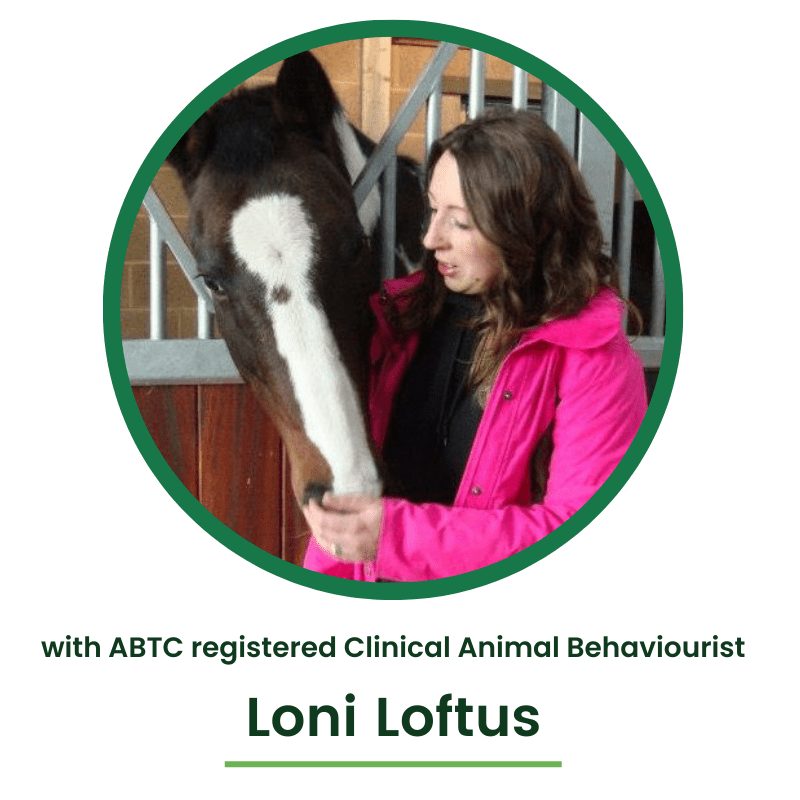
TalkEquine Clinical Animal Behaviour Case Study
Dealing with a rescue pony who presented with a significant fear of humans
Presented by Loni Loftus
Loni presents a case study involving a rescue pony taken into a welfare charity as part of a large hoarding case. The pony presented with significant fear of humans, having lived unhandled in an owned herd since birth. Loni discusses relevant history, differential diagnosis, the behaviour modification programme, and the outcome of the case. This case highlights the complexities of working with horses and ponies who have suffered prior trauma. Video footage is shown demonstrating the behaviours and techniques used to improve the pony’s emotional and behavioural responses to people and handling.
By the end of the webinar delegates will have enhanced their understanding of how horses can develop fear responses to humans, the differential diagnostic principles associated with equine behavioural cases, and treatment modalities appropriate for horses with prior trauma.
Original date of recording: Wednesday 14th June 2023

TalkEquine Health and Behaviour
Let sleeping ponies lie: sleep and sleep disorders in horses
Presented by Dr Gemma Pearson
Dr Gemma Pearson, RCVS specialist in Veterinary Behavioural Medicine (Equine), explores what we know about normal and abnormal sleep in horses, and its importance for welfare. She then discusses the diagnosis and treatment of sleep disorders in horses, including sleep deprivation collapse. Towards the end of the webinar, Gemma discusses real-life case studies involving horses who have experienced sleep disorders.
The aim of these webinars is to provide student, trainee and registered Clinical Animal Behaviourists with evidence-based training to develop their understanding of specific medical conditions and how they can impact on the horse’s behaviour, both in terms of the direct physical/behavioural impact, but also how having the condition can affect other areas of the horse’s life.
This webinar may also be useful to other equine professionals, and anyone with an interest in equine behaviour.
Original date of recording: Wednesday 24th May 2023

TalkEquine Clinical Animal Behaviour Case Study
Dealing with a recently purchased mare who exhibited challenging behaviour when her owner tried to put on her bridle
Presented by Jenni Nellist
Jenni discusses a case involving a recently purchased mare who exhibited challenging behaviour when her owner tried to put on her bridle.
In addition to the bridling issue, the mare also presented with intermittent box walking and weaving when stabled, and the vet struggled to examine her due to her apparent fear of men. This case provides an example of how liaising with the referring vet throughout behaviour modification increases the likelihood of further successful veterinary examination and treatment, whilst working towards the owner’s goals and aspirations.
During the webinar, Jenni discusses relevant history, differential diagnosis, the behaviour modification programme, and the outcome of the case.
Original date of recording: Wednesday 10th May 2023

TalkEquine Clinical Animal Behaviour Case Study
Dealing with a pony who bucked three times within a week, causing her young rider to fall from her
Presented by Dr Helen Spence
Helen discusses a case involving a pony who bucked three times within a week, causing her young rider to fall from her. The pony then subsequently became very fearful of the child, the tack and being in the stable with a human. Helen discusses the case in terms of fear, phobia and trauma, looking closely at the history and the subsequent treatment and behaviour modification. She discusses whether or not cases involving children should be treated differently from those with adults, how we manage the restrictions due to size of pony, ability of rider etc. It also includes the importance of safeguarding, thinking about how we manage expectations, and awareness and understanding of the problem for both children and parents.
During the webinar, Helen discusses relevant history, differential diagnosis, the behaviour modification programme, and the outcome of the case.
Original date of recording: Wednesday 19th April 2023

TalkEquine Clinical Animal Behaviour Case Study
Dealing with a retired racehorse who kicked his stable, causing injury to himself and damage to the stable
Presented by Kayna Prescott
Kayna discusses a case involving a retired racehorse who was kicking his stable, causing injury to himself and damage to the stable. The behaviour was showing signs of becoming repetitive. Kicking and biting was also being shown towards his owners during specific handling tasks. This was a complex case, highlighting the importance of environmental management in a behaviour modification plan.
During the webinar, Kayna discusses relevant history, differential diagnosis, the behaviour modification programme, and the outcome of the case.
Original date of recording: Wednesday 15th February 2023
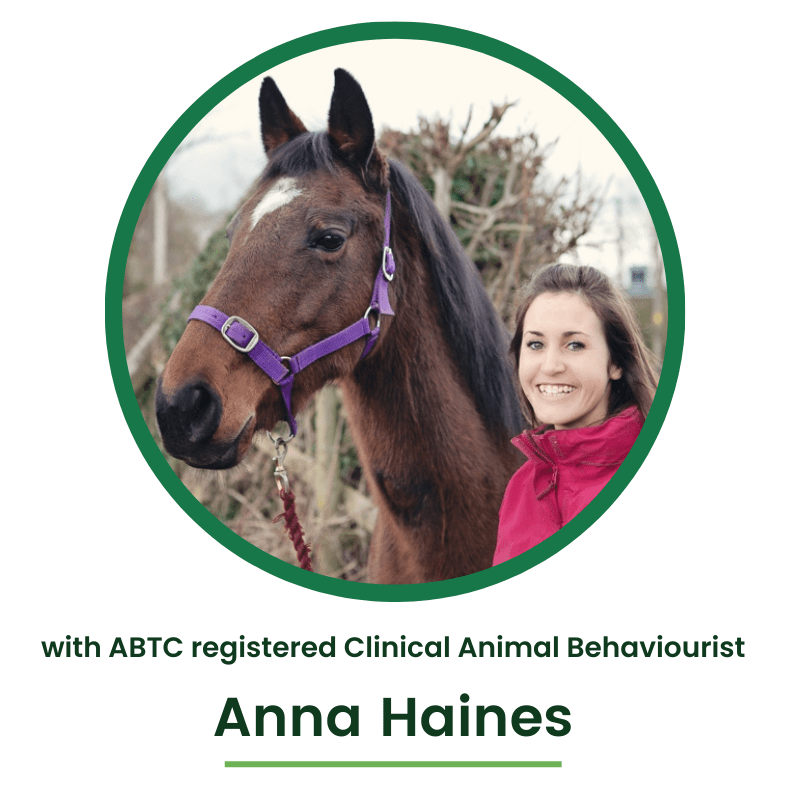
TalkEquine Clinical Animal Behaviour Case Study
Dealing with a gelding who started life as an orphaned foal and became very difficult to handle
Presented by Anna Haines
Anna discusses a complex case involving a gelding who started life as an orphaned foal and became very difficult to handle.
The gelding displayed aggressive behaviours towards handlers, which had caused physical injuries, reared when handled, struck out at handlers, performed unwanted chewing behaviours on objects and people, and chased people in the field. A primary goal of this case was to make it safer for people to handle him. Euthanasia was a consideration if his behaviour could not be modified, for the safety of his handlers. This was a complex, long-term case requiring considerable ongoing support.
During the webinar, Anna discusses relevant history, differential diagnosis, the behaviour modification programme, and the outcome of the case.
Original date of recording: Wednesday 19th October 2022

TalkEquine Clinical Animal Behaviour Case Study
Dealing with a gelding who presented with refusal and reluctance to move forward under saddle in the owner’s outdoor school
Presented by Jenni Nellist
Jenni discusses a gelding who presented with refusal and reluctance to move forward under saddle in the owner’s outdoor school.
Many efforts had been made to address the behaviours, including different riders, use of the whip and spurs, and a change of environment. However, these only served to make the behaviour worse in the school. Jenni will discuss how the behaviour developed, her behavioural assessment, the treatment plan and the outcome of the case.
During the webinar, Jenni helps viewers distinguish between potential motivations for the unwanted behaviour, and explain how learning theory and the natural behaviour of horses interact in schooling the riding horse. She explains how she safely and effectively addressed the horse’s underlying motivation and created the desired behaviour without causing him more stress and discomfort. Jenni also helps viewers gain a deeper understanding of how horses’ coping strategies interact with equitation.
Original date of recording: Wednesday 17th August 2022

TalkEquine Clinical Animal Behaviour Case Study
Dealing with a horse whose spooky behaviour and bucking led to a rider fall and injury
Presented by Dr Helen Spence
Helen discusses how she used differential diagnosis to assess the horse’s behaviour, and the subsequent diagnosis of kissing spines, which required surgery. In this webinar, Helen helps viewers further develop their understanding of the complexity of interaction between pain and behaviour, and how fixing one does not necessarily automatically fix the other. Rehabilitation in this case was not straight forward and she helps viewers recognise behavioural indicators of equine fatigue and discomfort during rehabilitation training, and how these can be used to inform the pace of progress.
Original date of recording: Wednesday 5th May 2022
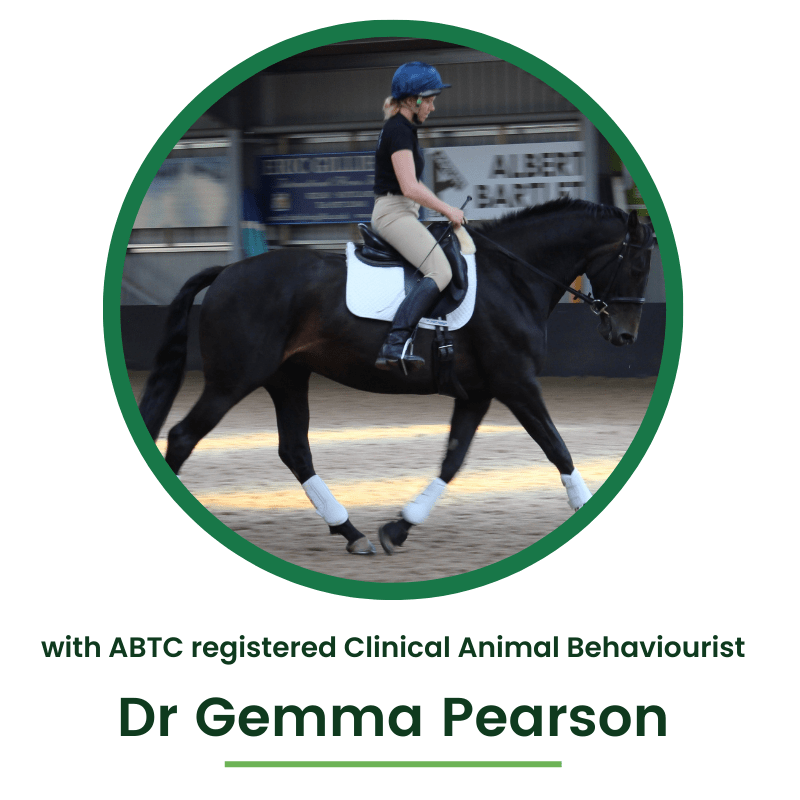
TalkEquine Clinical Animal Behaviour Case Study
Dealing with a horse that was highly aversive to loading
Presented by Dr Gemma Pearson
Gemma initially looks at approaches used to retrain horses to load into a lorry or trailer, and what evidence we currently have for these. She then focuses on a complex case involving a mare that was highly aversive to loading. Gemma discusses relevant history, differential diagnoses, and the behaviour modification programme. The case brings together many different contributing factors and Gemma explains how she developed a shaping plan to address them all, and how it was implemented over a prolonged period of time to achieve a happy horse and happy owner.
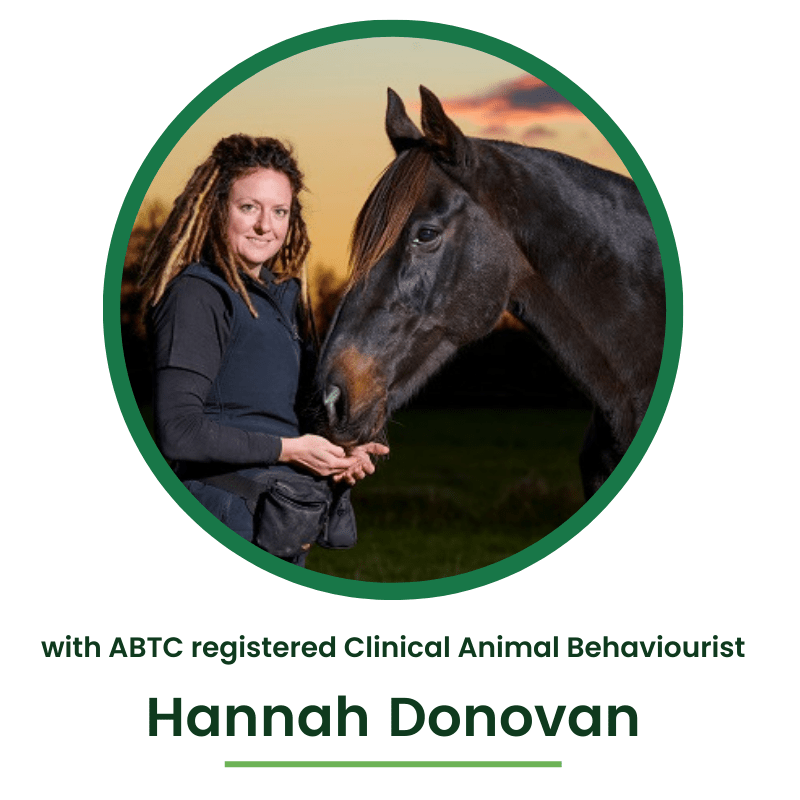
TalkEquine Clinical Animal Behaviour Case Study
Dealing with a horse who displayed owner-directed aggression
Presented by Hannah Donovan
The horse was purchased as the perfect eventer, but started to display very dangerous behaviour with every aspect of handling, including anybody walking past his stable. This presentation discusses relevant history, differential diagnosis, the behaviour modification programme, and the outcome of the case.
Original date of recording: Wednesday 3rd March 2022

TalkEquine Clinical Animal Behaviour Case Study
Dealing with a donkey who was fearful of being caught and handled, and displayed defensive aggression
Presented by Kayna Prescott
In this case, the donkey had been relinquished to The Donkey Sanctuary and was fearful of being caught and handled by people, and displayed defensive aggression towards handlers.
Kayna briefly discusses behavioural differences between horses and donkeys, and then go on to cover relevant history (where known), differential diagnoses, the behaviour modification programme and how it was delivered, and what the outcome of the case was.
This case study is invaluable to anyone working towards their CAB assessment as you could be asked questions about the behaviour of donkeys as well as horses.
Original date of recording: Wednesday 17th November 2022

TalkEquine Clinical Animal Behaviour Case Study
Dealing with a dressage horse that required advanced dental treatment but was refractory to veterinary care
Presented by Dr Gemma Pearson
Gemma discusses a dressage horse that required advanced dental treatment but was refractory to any veterinary care. General anaesthesia to undertake dental work was considered but this was not ideal as he required 6 monthly treatments.
This presentation discusses the relevant history, differential diagnosis, the behaviour modification programme and the outcome of the case.
Original date of recording: Wednesday 27th October 2021

TalkEquine Clinical Animal Behaviour Case Study
Dealing with a case of agoraphobia and separation anxiety
Presented by Jenni Nellist
The behaviour problem presented as being difficult to lead to and from the field and calling, pacing the fence when a particular mare companion was led away, and leaving the group at other times and weaving and frequent urination at the fence closest to the yard. The mare was able to completely relax and settle in the stable.
Original date of recording: Wednesday 15th September 2021
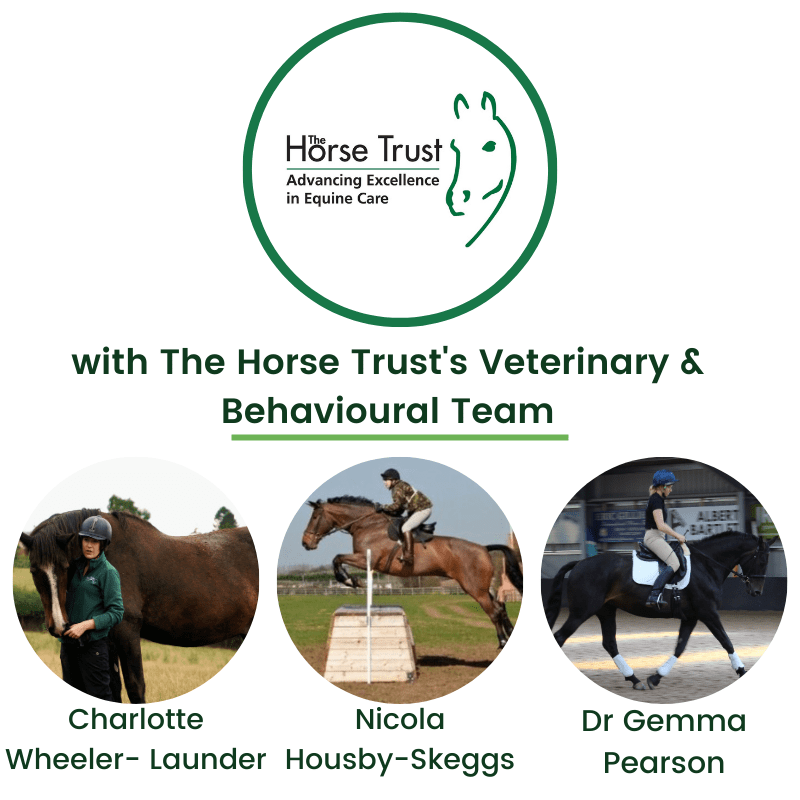
TalkEquine Clinical Animal Behaviour Case Study
Dealing with a welfare case who was difficult to catch and exhibited marked aggression
Presented by Charlotte Wheeler-Launder, Nicola Housby-Skeggs and Dr Gemma Pearson
Please note, the sound quality of this recording is compromised at some parts which is reflected in the price.
This webinar presents the multidisciplinary team approach taken to dealing with this complex case, which involved a veterinary behaviourist, trainee clinical animal behaviourist, veterinary surgeon and members of the equine care team. The team also discusses how the condition of the mare at seizure, and the seizure itself, impacted on her in both the short and long-term. This case became a catalyst for change in how welfare cases are approached and we will discuss the interesting combination of physical and psychological issues this case presented with.
Original date of recording: Wednesday 30th June 2021

TalkEquine Clinical Animal Behaviour Case Study
Dealing with a pony that was extremely difficult to catch
Presented by Anna Haines
In this webinar Anna discusses relevant history, the initial consult, differential diagnoses, how she dealt with the client, the behaviour modification programme and how it was delivered, and what the outcome of the case was.
Original date of recording: Wednesday 26th May 2021

TalkEquine Clinical Animal Behaviour Case Study
Dealing with a racehorse with behaviour issues associated with starting stalls, horse walkers and travelling
Presented by Loni Loftus
This webinar focuses on the case of a racehorse with significant issues surrounding use of the starting stalls, alongside further issues which developed around the use of the horse walker, travelling in the horsebox and passing through doorways. The main body of the presentation focuses on the development of the problems followed by the treatment protocol undertaken to resolve these issues. This case is interesting both due to the nature of the issues involved but also due to the complexities of working with performance horses in terms of treatment modalities, time frames and training styles employed.
Original date of recording: Wednesday 28th April 2021

TalkEquine Clinical Animal Behaviour Case Study
Dealing with a case that bolted under saddle
Presented by Dr Gemma Pearson
This webinar follows one of Gemma’s longest standing cases. It initially covers problems with catching when the horse arrived with his owner, followed by separation anxiety when stabled. The main body of the presentation evaluates video footage of bolting behaviour under saddle, the physical and psychological evaluation, and finally video footage of the treatment programme.
Original date of recording: Wednesday 31st March 2021
